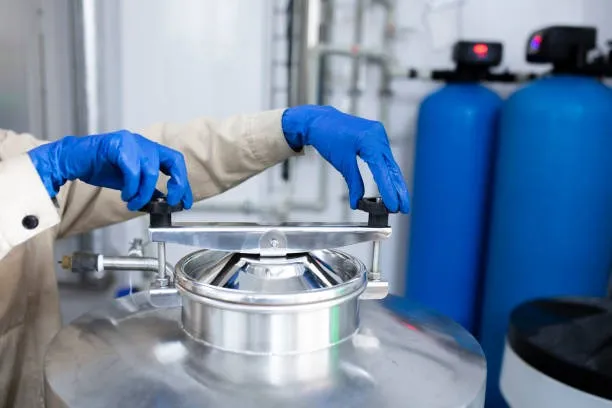
Boiler Installation in Shrewsbury, PA
Upgrading or installing a new boiler is one of the most important decisions for reliable winter comfort in Shrewsbury, PA. With cold winters and older homes that often rely on hydronic heating, a properly selected and installed boiler can deliver quieter, more consistent heat, lower fuel costs, and fewer emergency repairs.
Why a thoughtful boiler installation matters in Shrewsbury, PA
Shrewsbury sees regular sub-freezing temperatures and seasonal swings that stress heating systems. Many local homes are older, with existing cast-iron radiators or mixed distribution systems. Typical issues in the area include inefficient vintage boilers, undersized equipment for modern insulation upgrades, confined basement spaces that complicate venting, and rural properties relying on propane or oil where fuel selection impacts system design. A professional installation minimizes cold spots, avoids costly change orders, and ensures code-compliant venting and combustion safety in your specific home.
Common boiler installation types and fuel options
- High-efficiency modulating-condensing (MOD/Con) boilers: Best for homes looking to maximize energy savings and reduce emissions. Requires proper condensate drainage and neutralization.
- Conventional hot water boilers (non-condensing): Suitable in applications where venting or water temperature needs limit condensing operation.
- Steam boilers: Found in some older Shrewsbury homes with radiator steam distribution; replacement often requires a like-for-like approach or conversion to hot water systems.
- Fuel options:
- Natural gas: Common in municipal areas; cost-effective and familiar to most installers.
- Propane: Typical for rural properties without gas lines; requires outdoor tank considerations.
- Oil: Still present in older homes; modern oil-fired options exist but have different venting and storage needs.
- Electric/hybrid: For properties without fossil fuels or where emissions/space constraints dictate alternatives.
Site assessment and accurate heat-load calculation
A quality installation starts with a thorough site assessment and a proper heat-load calculation (not a rule-of-thumb sizing). This includes:
- Measuring the home’s square footage, insulation levels, window types, air infiltration, and orientation.
- Accounting for recent upgrades like new windows, added insulation, or finished basements.
- Determining distribution type: baseboard, radiators, in-floor radiant, or forced distribution with pumps.Accurate sizing prevents short-cycling, oversized equipment, and the comfort problems that come with them.
Model selection, fuel considerations, and system design
Model selection balances efficiency, durability, and the home’s needs. Key considerations:
- Matching boiler output to calculated heat load with margin for extreme cold.
- Selecting modulating boilers where variable output improves comfort and efficiency.
- Choosing appropriate controls and zoning (multiple thermostats or zone valves) to reduce wasted energy.
- Planning for an indirect water heater if domestic hot water demand is significant.
- Designing for local venting limitations: chimney liner upgrades, direct venting, or power venting where natural draft is insufficient.
Piping, venting, and code compliance
Proper piping and venting are essential for safety and long-term performance.
- Piping: Correct materials (black iron, copper, or approved PEX) and proper loop sizing, trap locations, and air elimination devices keep the system efficient and quiet.
- Venting: Sizing and material for chimneys, B-vent, PVC for condensing units, or direct-vent terminations must meet local and national standards.
- Safety and code: Installations must comply with local building codes, NFPA standards, and fuel-supply regulations. This includes pressure relief valves, expansion tanks, backflow prevention where required, combustion air provisions, and carbon monoxide safety measures.
Step-by-step installation process
- Pre-install site inspection and final equipment selection based on heat-load results.
- System shut down and safe removal of the old boiler and associated components.
- Preparation of mount or pad, clearances, and vent modifications (chimney liner, new flue, or sidewall vent).
- Mechanical installation of the new boiler, pumps, tanks, piping, and controls.
- Electrical connections, thermostats, and safety interlocks wired and grounded per code.
- Condensate and drainage setup for condensing boilers, including neutralizers if required.
- Initial fill, purge, and air removal from the hydronic system; pressure checks for leaks.
Commissioning and performance testing
Commissioning verifies the system performs as designed:
- Combustion analysis to confirm safe, efficient fuel burning and acceptable flue gas readings.
- Leak and pressure tests on the hydronic loop.
- Flow and pump verification, zone balancing, and thermostat calibration.
- Safety control checks: low-water cutoffs, pressure relief operation, and system shutdown tests.
- Preliminary efficiency check to ensure the selected unit achieves expected performance under local conditions.
Post-installation walkthrough and homeowner orientation
After commissioning, homeowners receive a walkthrough that covers:
- How the new system operates and basic controls.
- What normal sounds and indicators to expect.
- Safety practices (CO detector placement, combustion-air clearances).
- Recommended maintenance schedule and what to look for between service visits.This ensures the homeowner understands the system and can spot potential issues early.
Maintenance recommendations for Shrewsbury homes
To preserve efficiency and reliability, follow a proactive maintenance plan:
- Annual tune-up before heating season: clean burners, inspect heat exchangers, test safety controls, and adjust combustion.
- Check system pressure and expansion tank condition quarterly.
- Flush or chemically treat system water if corrosion or mineral buildup is present — common with older radiators and hard water.
- Inspect venting and clearances annually; remove debris and check chimney liners.
- Replace air filters and maintain indirect water heater anodes as applicable.
Benefits of a professional, code-compliant boiler installation
A properly engineered and installed boiler in Shrewsbury, PA delivers:
- Consistent, comfortable heat during extended cold spells.
- Improved fuel efficiency and lower operating costs with the right equipment.
- Fewer emergency repairs and longer equipment life through correct installation and preventive maintenance.
- Peace of mind with safety systems and code compliance protecting occupants and property.
Whether you’re replacing an aging oil boiler in a Victorian home or installing a high-efficiency condensing unit in a modern build, thorough assessment, correct sizing, professional piping and venting, and rigorous commissioning are the foundation of a dependable heating solution tailored to Shrewsbury’s climate and housing stock.


Enjoy flexible financing options that make upgrading or repairing your HVAC system easy and budget-friendly.










